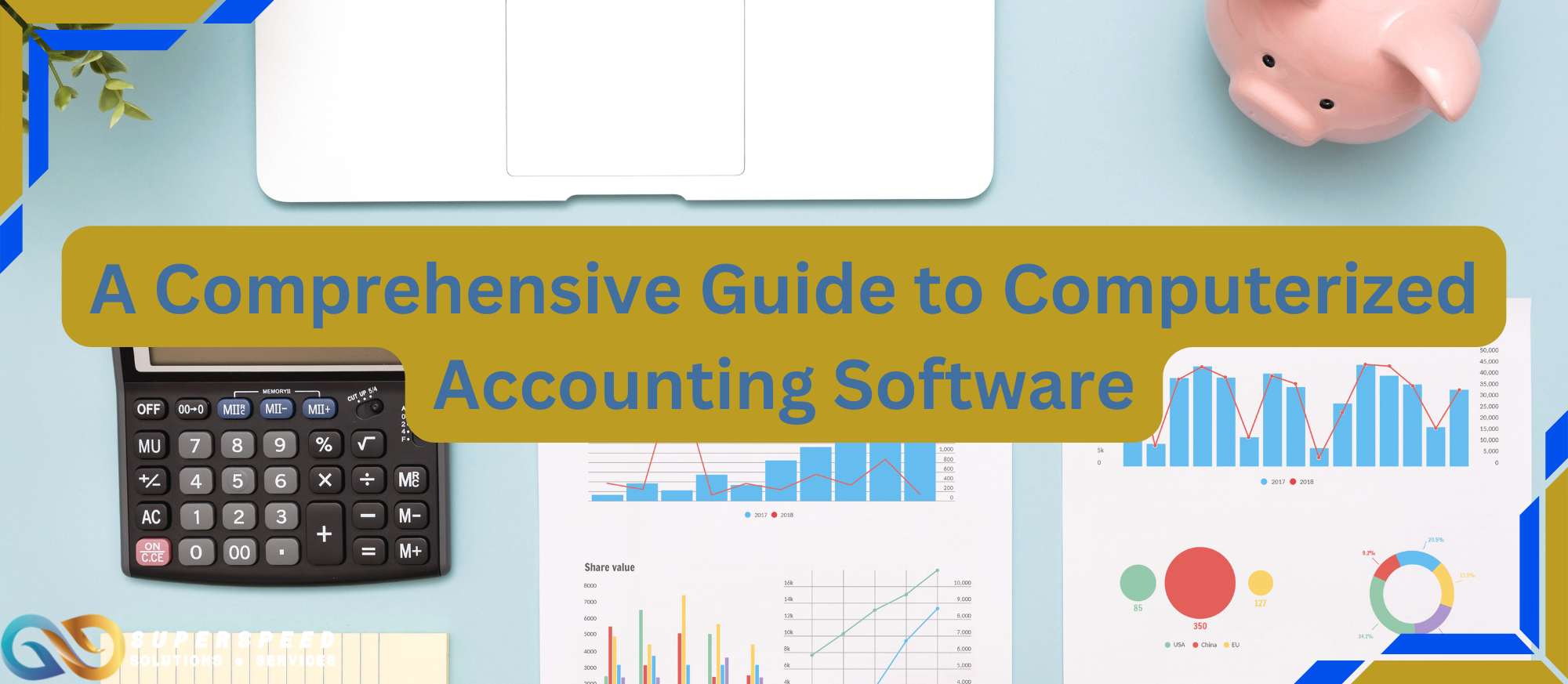
A Comprehensive Guide to Computerized Accounting System
Before technological advancements were made in the field of accounting, all processes related to accounting involved manual computation. This traditional method took a lot of time and was prone to various mistakes. However, with the rise of computerized accounting system (CAS), these tasks have become faster, more accurate, and easier to manage.
Adopting accounting software can be a game-changer for businesses in the Philippines, where compliance with local tax laws and reporting standards is crucial.
Understanding Computerized Accounting System
Definition and Comparison
Computerized accounting system refers to digital tools designed to automate financial tasks such as bookkeeping, reporting, and compliance. Unlike traditional accounting methods that rely heavily on manual processes and paper records, computerized systems streamline operations by minimizing human error and enhancing data management.
Importance of Computerized Systems
Key Features of Computerized Accounting System
- Data Security: Centralized storage protects against data loss and unauthorized access.
- Automation: Reduces manual entry, minimizing errors through automated processes.
- Real-Time Reporting: Provides instant access to financial data for informed decision-making.
- Scalability: Adapts to growing business needs and increasing transaction volumes.
- Integration: Compatible with other business tools, enhancing overall operational efficiency.
Different Types of Computerized Accounting System
- Cloud-Based Solutions: Accessible from anywhere, ideal for remote work environments.
- Desktop Applications: Installed locally for enhanced security but limited mobility.
- Industry-Specific Software: Customized solutions for sectors like retail or manufacturing.
- Open Source Options: Cost-effective alternatives offering customizable features.
Pros and Cons of Computerized Accounting System
Pros
- Increased Accuracy and Speed: Automated calculations lead to precise financial reporting.
- Enhanced Productivity: Automation frees up time for staff to focus on strategic tasks.
- Cost Savings: Reduces long-term expenses associated with manual labor and errors.
- Improved Compliance: Helps businesses adhere to local regulations and standards of the Bureau of Internal Revenue (BIR).
Cons
- Transition Challenges: Moving from manual to computerized systems may require time and training.
- Initial Costs: The investment in software and training can be significant
- Technology Dependence: Increased reliance on technology raises concerns about cybersecurity risks
BIR Requirements for Computerized Accounting System (CAS) in the Philippines
The Bureau of Internal Revenue (BIR) in the Philippines mandates the adoption of a Computerized Accounting System (CAS) for businesses to ensure compliance with tax regulations, enhance efficiency, and maintain accurate financial records. Additionally, is requirement is outlined under Section 232 of the Tax Code and further detailed in Revenue Regulations No. 5-2014. Businesses intending to issue electronic invoices must register their CAS with the BIR to comply with legal standards and avoid penalties.
Importance of BIR CAS Compliance
- Legal Compliance: Compliance with BIR regulations helps businesses avoid penalties and legal issues.
- Efficiency: CAS significantly reduces manual errors and improves operational efficiency, allowing for quicker financial reporting and audits.
- Transparency: A computerized system enhances transparency in financial transactions, which is crucial for tax audits.
- Cost Savings: Digitizing accounting processes can save businesses on printing and storage costs associated with traditional methods.
To register a CAS, businesses must fulfill specific documentary requirements categorized into two main applications: Initial Application to Adopt CAS and Application for System Enhancement/Modification.
How to Choose the Right CAS
- Business Size and Complexity: Ensure the software meets your operational scale.
- Budget Constraints: Evaluate cost-effectiveness relative to features offered.
- User-Friendliness: Look for intuitive interfaces that facilitate easy adoption by staff.
- Feature Alignment: Choose software that supports specific business needs, such as inventory management or multi-currency transactions.
How SAP Business One Enhances Computerized Accounting for PH Businesses
SAP Business One is a strong contender for Philippine businesses looking for a comprehensive computerized accounting solution.
Conclusion
Accelerate Your Business Management Efficiency with SuperSpeed!
Why Choose SuperSpeed?
- Comprehensive Solutions: Our world-class software, including SAP Business One, streamlines your operations in accounting, sales, inventory, and more.
- Client-Centered Approach: We prioritize your needs with efficient and effective IT services to enhance your business processes.
- Visionary Leadership: Join us on our journey to become the top choice for management solutions in the Philippines.
Take the Next Step!
Transform your operations today. Contact us for a consultation and discover how SuperSpeed can streamline your business operations with SAP Business One!
